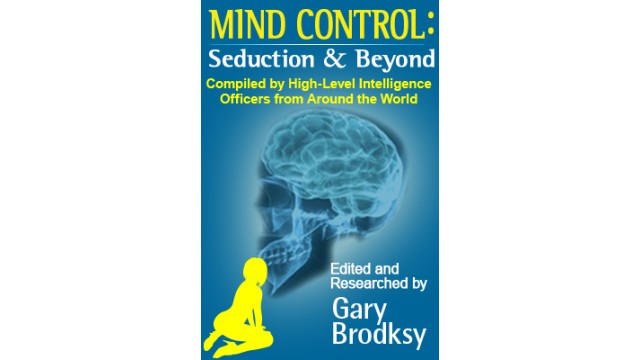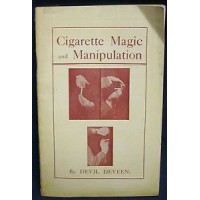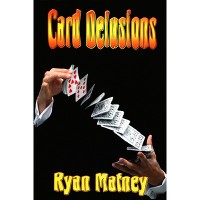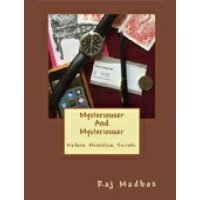Mind Control by Gary Brodksy
- Product Code: B2#170
- Reward Points: 5
- Availability: In Stock
- $4.99
-
$1.99
- Price in reward points: 199
$9.99
Mind control techniques : Tell the Truth, the Whole Truth, and Nothing But the Truth. This can be highly effective and very convincing, if you know your subject material well, and are a good speaker. ... And IF the truth is really what you want your audience to hear and believe. The Truth, as a matter of habit, has some disadvantages: You have to learn and remember a whole lot of facts, and keep them straight in your head. The facts might not always be what you wish them to be. And, alas, the truth is sometimes very boring... Lie. This one is simple, straight-forward, and obvious. Just lie and say whatever you want to. It has the advantages that you don't need to memorize so many facts, and you can make up new facts when the currently-existing ones don't suit your purposes. The disadvantages are that you might get caught in a lie, and that would destroy your credibility. "You're never going to make it in politics. You just don't know how to lie." Richard M. Nixon Secret Lives of the U.S. Presidents, Cormac O'Brien, page 228. Lie By Omission and Half-Truths. This is also known as Suppressed Evidence. This one is more subtle. It has the advantage that you can't get caught in a lie, because everything that you say is true. You just happily fail to mention all of those bothersome little facts that do not support your point of view. Should a critic point out one of those annoying undesired facts, you can at least feign innocent ignorance, or claim that the fact is really just an unimportant, trivial detail, not worth mentioning. For example: In 1908, the Lutheran minister Dr. Frank Nathan Daniel Buchman got into a squabble over money with the trustee committee of their hospice for young men in Philadelphia, and in an angry huff, Buchman resigned and got on a boat for Europe. He ended up at a large religious convention in Keswick, England, where he felt that he had a spiritual transformation. He felt moved to write letters of apology to all six of the trustees with whom he had squabbled, humbly asking their forgiveness. Buchman said that none of them even bothered to answer his letters. That was rather unkind of them, wasn't it? No wonder Buchman had a disagreement with them, if they were really so haughty and so inconsiderate that they would not even acknowledge a man's humble apology and request for forgiveness... There is just one small detail that Frank Buchman left out in his telling of that story: Buchman didn't put any return address on the envelopes that he mailed back to Philadelphia.
Reviews (0)
Related Products
Mind Mysteries (1-7) by Richard Osterlind
Richard Osterlind - Mind Mysteries (1-7) The Bible as mentalism , Richard Osterlind not only sh..
$5.99 $6.99
Heirloom Deluxe Emilys Revenge by Colin Miller & Jamie Badman
Effect: Whilst telling a story, your spectator is asked to use all her powers of intuition to de..
$1.99 $4.76
On The Loose (1-4) by Bill Malone
BILL MALONE - ON THE LOOSE (1-4) Early Education Bill Malone , in this teaching series, you will fee..
$2.99 $5.99
Mythology Codex by Phill Smith
Scanning Version!Mythology Codex is the remarkable new work from UK mentalist, author and artist Phi..
$3.99 $22.99
PS - I Love You! by Steve Shufton
Impossible magic with your business card. Very strong, and your card is left in the hands of a compl..
$1.99 $5.99
Recommend
In A Class By Himself - The Legacy Of Don Alan by Don Alan
Don Alan - In A Class By Himself - The Legacy Of Don Alan PDF 289 Pages "With this book, whole ne..
$5.99 $14.98
Palms Of The Desert by Docc Hilford
Docc Hilford - Palms Of The Desert PDF You can give a good cold reading, right? You know a bit abo..
$3.99 $6.99
Keeping The Center by Docc Hilford
Docc Hilford - Keeping the Center PDF are 48 original mental routines! Rave reviews have come in f..
$3.99 $6.99
A Shot In The Act by Doc Eason
Doc Eason - A Shot in the Act PDF Eason, Doc: A Shot in the Act ?1994 Doc Eason, self published Pa..
$3.99 $6.98
Pseudo Hypnosis by Devin Knight
Devin Knight - Pseudo Hypnosis PDF This release teaches you how to combine a clever mental effect ..
$6.99 $9.98
Cigarette Magic & Manipulation by Devil Deveen
Devil Deveen - Cigarette Magic & Manipulation PDF Edward Bagshawe, undated c 1930-1940ies Stap..
$2.99 $5.99
Rem (Pictures) by Dave Forrest
Dave Forrest - REM Piture Files REM will allow you to have anyone describe, with unfailing accurac..
$3.99 $6.99
Coinvanish Vol 1 by Dan Watkins
Dan Watkins - Coinvanish Volume 1 PDF Early in 2002, Dan Watkins ad..
$3.99 $6.98
Magic Words A Dictionary by Craig Conley
Craig Conley - Magic Words A Dictionary PDF Magic Words: A Dictionary is a one-of-a-kind resource ..
$6.99 $10.98
Eccentricks by Charlie Frye
Charlie Frye - Eccentricks PDF A rich collection of over 70 tricks, gags, and stunts amusingly pre..
$5.99 $8.89
F For Fiction by Benjamin Earl
Benjamin Earl - F for Fiction PDF F for Fiction features three killer routines, all of which work ..
$2.99 $7.98
Phantom by Ben Allen
Ben Allen - Phantom PDF Phantom is a way to gain access to the Iphone 6 that uses both the fingerp..
$3.99 $6.98
Milk To by Bazar De Magia
Bazar de Magia - Milk To PDF demo:https://www.youtube.com/watch?v=hkmMOjdOKkQ Any audience -both ..
$2.99 $5.89
The Truth Is Out There by Art Vanderlay
Art Vanderlay - The Truth Is Out There PDF During your performance you ask via a show of hands who..
$3.99 $9.98
Card Delusions by Ryan Matney
"What I like about Ryan Matney's card magic is the tight construction and his attention to det..
$6.99 $10.58
Mysteriouser And Mysteriouser by Raj Madhok
We??ve known Raj Madhok since before the invention of Vanishing Inc. He has been a frien..
$3.99 $9.66


-by-Richard-Osterlind-160x90.jpg)



















